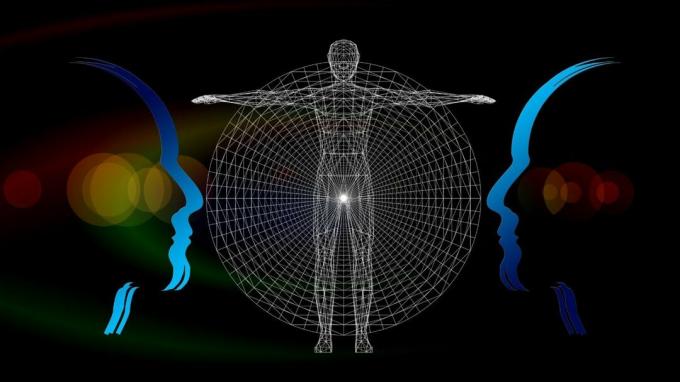Myth and History in Freudian Theory: the scientificity of psychoanalysis
The History taught in the academies tells us that the course of human events experienced a rather astonishing acceleration around a period later called Renaissance. According to what is accepted and disseminated today, the European nations underwent a movement of cultural and material transformation of great amplitude that led them to expand, discover, explore, conquer, dominate, exploit, colonize and map the world.
It is impossible here to give an idea, even roughly, of the richness, complexity, and scope of the disturbances that occurred in space. of a few centuries in the fields of culture, arts, social relations, economy, technology and religion, to name just some. Let us only highlight the fact that European culture, in its movement towards itself and towards the world, has given birth to two objects that deserve our attention. That thing called science in the 17th century; and that other thing, a little later, called psychoanalysis.
- We recommend you read: "Regression: what is it according to psychoanalysis (and criticism)"
Big History and psychoanalysis
All the actors of this globalization, be they travelers, explorers, conquerors, merchants, discoverers or dreamers participated in their own way in the collective movement of the great story. Whether they worked on doing or knowing, each one, depending on his psychic organization, had the possibility of living the adventure in an eminently differentiated and personal way..
Each era offers its subjects outlets for their drives and it would be fun to wonder what role there could be had any of the drives enunciated by Freud in a specific activity linked to the events historical. It seems quite obvious, for example, that the unbridled thirst for gold of the early Spanish conquistadors had something to do with rampant oral greed.
Sadism will have found in this same environment a fairly propitious playing field to express itself without inhibitions. But, how to think about slightly more complex problems, such as the evangelizing passion of the founders of missions, the Jesuits of Paraguay or the Franciscans of the Mexican Sierra Gorda? This specific example deals with a construction, with doing something, which has resonances in the dimensions of architecture, community life and spirituality.
It is a realization that must be understood as an expression of the anal drive, even though other components are integrated into it. We can multiply this "little game of drives" at will, play it in a group and ask ourselves to which drive we should attribute each historical work. The little game has the character of somewhat idle entertainment as long as the other is not taken into account.
And in fact, the other, the otherness, has taken a long time to be taken into account in this History that we are told and from which we have fed. Genocide and slavery are a rather brutal approach to the problem of otherness.. And although many voices such as religious and missionary voices made themselves heard with an evangelical message of sweetness and compassion, it was always only with the objective of converting the Indians into Christians, admitting the problem of otherness only as a challenge and as a problem to be solve.

The myth of the noble savage
Secular history has also had its myths and myths of otherness, and one of these flourished in the eighteenth century as the "noble savage myth." An idealized vision of the tropical native, happy and good, feeding freely on the fruits of the bountiful land, free from the vices and corruption of civilized man.
A distorted and purely Western vision of a humanity that never existed, a fictitious and very erroneous construction that allowed us to see and understand what man might have been before orality and sexuality became conflicting, before it reached its present state of bitter divorce from Nature. At the bottom of this myth was also the anguishing question: where does this progress that we ride with so much pride take us?
Yes, otherness in its radical dimension took a long time to be taken into account, although it was actually present from the beginning, and from the very beginning. beginning also in literature, in the form of those various travel stories that are for us trips in space and also in time.
Little by little it has been recognized as the object of a more organized, more methodical, more scientific discourse, under the newly created epigraph of "Ethnology".
And it is on this newly created scientific material that Freud draws in Totem and Taboo (1914). Driven by an oral drive that covers a wide range of topics and is sustained over time, devours all literature like a curious and attentive reader, with the complicity of a few cigarettes dutch. Frazer, Wundt, Spencer, Lang, Tylor, to name only the main authors. What he finds there is unheard of: from Berggasse 19, and without moving an inch, through the fine mist of tobacco smoke, the world is revealed to him by these men of science. Thought of magic and magic of thought.
The first two essays are factual. Having achieved the "reduction of its object" according to Lacan's expression (1), and thus constituting itself as a science, ethnology offers us, thanks to Freud's assimilation of all the authorities that were on his menu, a accumulation of specific observations on the social, religious and matrimonial organization of societies primitive.
Taking examples from all known peoples, the thousand and one mysteries of the law and the unique behaviors that it generates are described in detail. Food taboos, drastically restrictive functioning of kinship systems, linguistic taboos linked to the pronunciation of the names of the dead or the designation of clan ties, avoidance behaviors related to promiscuity or aggressiveness, punitive and purifying ritual measures to contain the contagion of transgressions...
Beyond the descriptive aspect, fascinating in itself and that puts before our eyes the swarm of human curiosities, there is an attempt to deepen the intimate understanding of things. What is the reason for all these behaviors? What is a taboo? How does a transgressive contagion develop and how can it be stopped? What is the relationship between a taboo and the Law? What is the relationship of the Law with the essence of humanity?
Remembering that Freud reaffirms throughout all his work the demand for scientificity that is at the center of his approach, it seems opportune to ask, with regard to Totem and Taboo, to what extent all this is or is not scientific. Let's try to provide some elements of response: first of all, these are facts, derived from observation. Not an observation made by anyone and loaded with subjectivity, but a precise, meticulous, rigorous, refined observation, repeated several times and methodologically verified to detect possible errors according to procedures, both individual and collective.
The omniscience of the subject of science
An observation made by a subject, the scientist, who withdraws from the field of observation and no longer appears in what is observed. The subject of science is an absent subject (until psychoanalysis, if we consider that psychoanalysis is a science) from the field taken as an object by science (2). He is a subject who observes and observes himself, who accounts for everything he observes but does not allow anything of himself to enter the field of what is observed. It is a subject that is limited in its claims to omniscience, which restricts its ambitions for certainty to very small segments of reality..
The Cartesian process of the cogito is emblematic of this radical questioning of beliefs that want to pass themselves off as knowledge. After the methodical dissipation of all illusions, we only have one certainty: the statement "I think, therefore I am" is true (3). The subject of science, as Descartes describes his birth, is a subject that transforms his castration experienced as a limitation into a requirement and instrument of the method.
Starting from the limit between the pleasure principle and the reality principle, constantly reaffirmed and redrawed, Freud -and Lacan he emphasizes that he operates in the straightest line of Descartes - he makes not a limit where everything stops, but a beginning where everything begins. A scientism, then, or a demand for scientism... There is an objective of this order in Freudian thought applied to all the phenomena that interested him, in the first place those of the clinic. It is very tempting to gather apparently heterogeneous observations by virtue of detected similarities in their deep nature, on all when he sees how many surprisingly common features are shared by obsessive neurosis and the fearful respect of the primitive for the Taboo.
There is a striking agreement between clinical facts and ethnographic facts.: the uncomfortable position of the subject in front of the ambivalence of his feelings, the transmission by physical contact or by association of thoughts, the prohibitions that in one case as in the other concern what has been repressed in the unconscious... "The only example offered by the comparison of the taboo with obsessive neurosis already allows us to deduce what is the connection between the singular forms of neurosis and the formations of culture, as well as the importance that the study of the psychology of neuroses acquires to understand cultural development. (4)
But let us dwell for a moment on this result obtained by Freud in his reflections. It seems to be in line with the paradigm in which it moves. Things are quite clear and, deep down, quite simple; They are ordered chronologically. The present is the result of an evolution: the past is deposited in layers that accumulate and overlap, but do not disappear. On the contrary, they are preserved and can be reactivated by going back in time.
It should be noted in passing that it is at this precise point in epistemology that Freud's passion for archaeology, being for him the material evidence of a forgotten past an abundant source of fantasies and cogitations. Regarding the development of the individual, we find the child in the adult and particularly in the neurotic, in whom these fixations in the past are visible and decipherable..
The same is true and parallel, though along different lines, at the collective level, where the stages of development that led to the modern man are detectable in their natural state in those primitive peoples, recently promoted to the rank of object of the science. The classification accepted at the time between the totemic, religious and scientific ages was taken up as which by Freud, to the point of titling the fourth of his essays "The return of totemism in childhood". It is therefore not surprising that, according to the equation "savage = child = neurotic", Freud came to emphasize the relationship between obsessional neurosis and primitive mentality.

So, is history a myth?
This is supported by the parallelism between phylogenesis and ontogenesis, accepted but little debated. Haeckel's theory of recapitulation (5), which Darwin integrates into his own theory of evolution, provides Freud with a pillar that supports a considerable part of his own constructions. Freud, in turn, gives Darwin unequivocal evidence of his admiration, calling him "the great Darwin" (6). Freud relies on his elaborations on the idea that psychogenesis recapitulates culturogenesis..
History, therefore, is not a myth. But is there a clear and definitive opposition between the two? Freud intends, with the help of the scientific literature on which he relies, to reconstruct the historical stages of the development of humanity as as they were actually produced, and when this is not possible, due to a lack of tangible elements on which to rely, he makes up for it by reconstructing a stage probable, or plausible, namely, in Totem and Taboo, the ritual murder of the father and his devouring by his children during the banquet totemic-democratic.
The myth, therefore, is born where history ends, it is beyond history. Similarly, in the individual subject of your clinic, it is the forgotten pathogenic memories that need to be brought back. to consciousness according to modalities that go from memory to perlaboration (7), and to construction as he will say later (8).
But, where does the fine line that separates the historical from the mythical pass, and what motivates the jump from one to the other? If we return to the categories adopted by Freud himself in Totem and Taboo on the succession of the ages of humanity: totemic, religious, and scientific, the story must have emerged at some point in the transition from the religious to the scientist. It is a well-established fact that, in the history of humanity, myth precedes history.
By this we mean that the type of discourse about the past of human events that we know today as History has a traceable date of appearance, before which the myth is supposed to have reigned as master. indisputable. We also know, or suspect, that History has come to compete with the myth, to discredit it, to ridicule it. Let's see what Thucydides says about it, at the end of the fifth century, who seemed to be clearly aware of the leap that his historical act implied:
“On the one hand, as regards the acts that took place during the war, I did not think I had to rely on the information from the first arrived, nor of my personal opinion: either I witnessed them myself (autopsy), or I have investigated each one with all possible accuracy in each case. On the other hand, the investigation had difficulties, since the witnesses of each event presented versions of them that varied according to their sympathy for one side or the other, and according to their memories. Perhaps the absence of the fabulous element (mythodes) in the events reported will detract from my work before an audience. However, if those who wish to examine the truth of the events that occurred and of those that are to be similar to them in the future, according to the human condition, consider them useful, this will be enough. In short, my work has been composed as an acquisition forever more than as a competition piece intended for momentary listening (9).”
conclusions
It seems difficult to draw a clearer line between myth and history at the collective level, but what about the individual level and in the context of a treatment? The subject does not remember everything. What is missing, he has to rebuild. If the werewolf does not remember actually witnessing his parents' tergosal coitus when he was 18 months, according to Freud he must admit the historical reality of this episode as the cause of his symptoms later. Is this history or myth? Is it a real fact that could be verified by any witness if it were possible to rewind the thread of time and invite yourself to the party, or is it a mythical construction, a truth that only exists because Freud enunciates it, because his patient believes it, and because he has some virtue in bringing order out of chaos symptomatological?
The archaeological paradigm of the past preserved as it is, but inaccessible to the present, is here in full operation. But why Freud's inflexible insistence on the actual reality of the episode? Indeed, his theory could dispense with this reality and instead invoke a kind of "specific materiality of myth and fantasy", according to the expression of J. Q. Valabrega (10).
After all, from an epistemological point of view, It would not be the first time in the history of science that a theoretical construction was supported by a premise with a particular status of reality, without worrying about the validity of this construction. Physical science even made of it a kind of birth certificate with Galileo and his law of fall of bodies, which supposes, for a body left to itself, a rectilinear movement uniform; a uniform rectilinear movement that no one in nature has ever been able to observe, but in whose existence everything that follows is nevertheless committed.
As for the act of birth, if we consider that of psychoanalysis, was it not an identical move that Freud made when he renounced his theory of birth? seduction, renouncing the materiality of the acts of sexual assault and substituting it for the existence of a fantasmatic scenario that involves the subject? Speaking of the scientist -and therefore of himself- Freud mentions that his unwavering belief in the value of processes of reason is a redirection of the ancient dream of omniscience that was that of the totemic and religious epochs (11). But, are there one or several regimes of rationality in Freud and how are they arranged among themselves, what is their syntax?
In the limited space of this brief essay, we will not have had time to complete the program required by the title. We just wanted to give here an idea of the present state of our reflections on the matter. We have only scratched the surface of the question of the scientificity of psychoanalysis. We have not explored all the consequences of the distinction between myth and history in Freudian theory. However, some clues have emerged that it would be interesting to see where they might lead. The progress of this work has also made it possible to identify a number of new issues that would be worth developing with time and rigorous attention..



